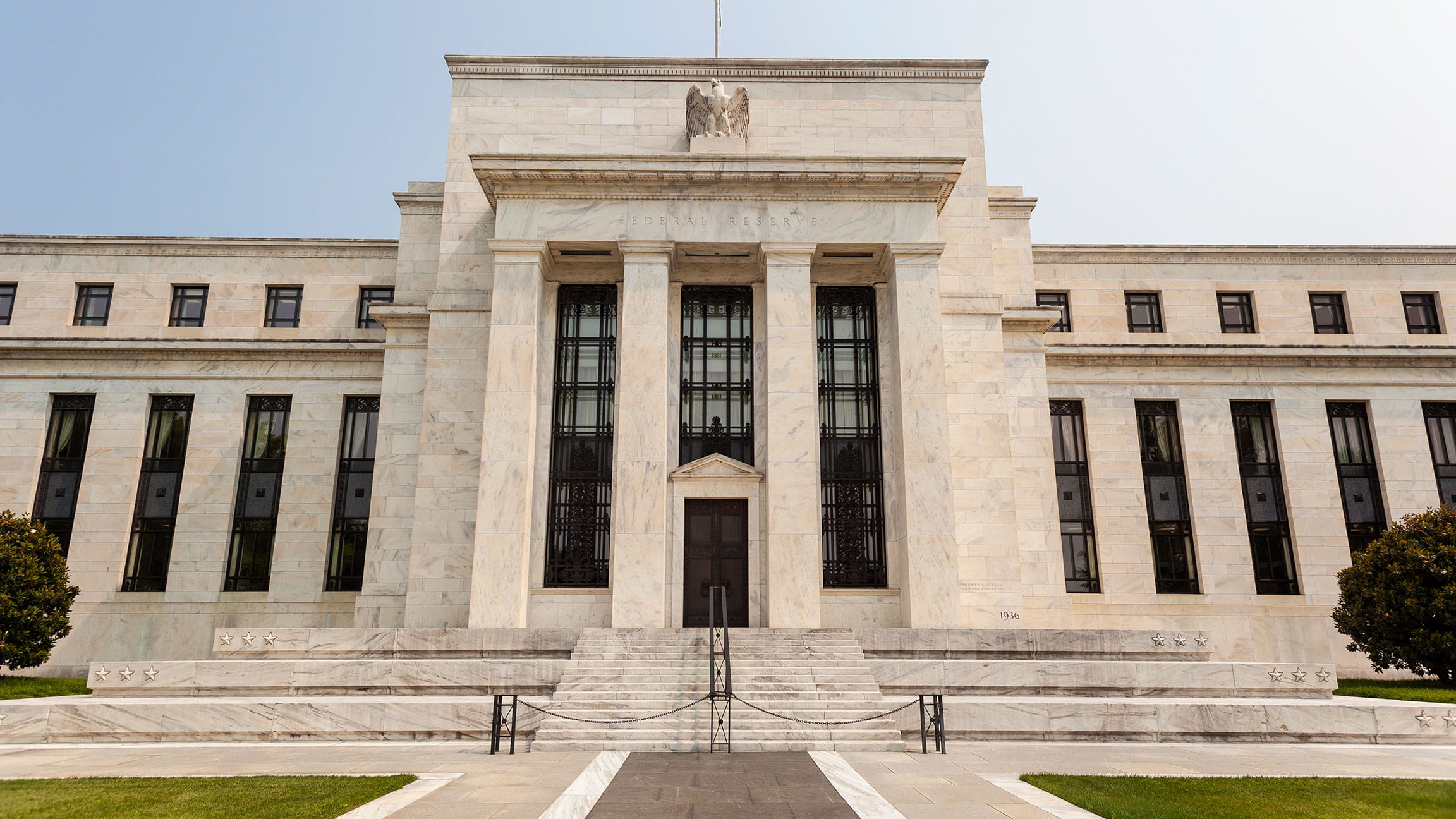Kommentar von Franck Dixmier, Global Head of Fixed Income bei Allianz Global Investors, im Vorfeld der Fed-Sitzung am 17.-18. September 2019

Zusammenfassung
Die US-Wirtschaft bleibt robust, angetrieben vom privaten Konsum und einer niedrigen Arbeitslosigkeit bei niedriger Inflation. Das Wachstum im Dienstleistungssektor verlangsamte sich zwar im Juni und Juli, hat sich im August aber wieder erholt.
|
Das Wichtigste in Kürze:
|
Die US-Wirtschaft bleibt robust, angetrieben vom privaten Konsum und einer niedrigen Arbeitslosigkeit bei niedriger Inflation. Das Wachstum im Dienstleistungssektor verlangsamte sich zwar im Juni und Juli, hat sich im August aber wieder erholt. Andere jüngere Konjunkturdaten wie etwa die Zahl der neuen Stellen deuten gleichzeitig darauf hin, dass sich das Wachstum mit einem etwas geringerem Tempo fortsetzen wird.
Derzeit ist unklar, ob die US-Binnenwirtschaft die Verschlechterung des internationalen Umfelds kompensieren kann. Der Handelskonflikt zwischen den Vereinigten Staaten und China hat sich verschärft, das Risiko eines harten Brexit bleibt bestehen und das globale Wachstum hat sich verlangsamt. Auch wenn der Fed-Vorsitzende Jerome Powell in seinen jüngsten Äußerungen das Risiko einer Rezession heruntergespielt hat, dürften ihm die globalen Abwärtsrisiken Sorgen bereiten.
In diesem Spannungsfeld von robustem Binnenwachstum und zunehmenden internationalen Risiken wird die Fed keine Risiken eingehen wollen. Daher erwarten wir, dass die Zentralbank ihre akkommodierende Geldpolitik fortsetzen wird. Wie die Fed bereits im Juli angedeutet hat, dürfte sie den Leitzins erneut um 25 Basispunkte senken, um das Wachstum zu unterstützen. Wie bereits bei der letzten Zinssenkung vor zwei Monaten wäre dies eine Vorsichtsmaßnahme, die wir aber nicht als Einstieg in einen neuen Zinssenkungszyklus ansehen.
Die Finanzmärkte erwarten nach zwei Zinssenkungen im Jahr 2019 zwei weitere Schritte für 2020, und wir glauben, dass sie hiermit richtig liegen könnten. Ein Zinsschritt diese Woche sollte es ermöglichen, die langfristigen Zinsen auf ihrem niedrigem Niveau fest zu verankern und Aufwertungstendenzen des US-Dollars im Zaum zu halten.
Comments from Franck Dixmier, Global Head of Fixed Income for Allianz Global Investors, ahead of the FOMC meeting on 17-18 September 2019
Key takeaways:
- We expect the Fed to cut the fed funds rate by 25 basis points at its 17-18 September Federal Open Market Committee meeting.
- Faced with a still-robust economy and growing geopolitical concerns, Fed Chair Powell likely wants to avoid taking risk – preferring instead to keep monetary policy accommodative by lowering short-term rates.
- We expect this will meet the market’s expectations, and anticipate that long-term rates will stay firmly anchored at today’s low levels.
The US economy remains robust, driven by household consumption, low unemployment and low inflation. Growth in the service sector had slowed in June and July but rebounded in August, with economic activity (as measured by the Institute for Supply Management's non-manufacturing report) at 56.4% – up 2.7 points from July. However, other recent cyclical data points, including a slowdown in job creation, suggest that growth may continue at a more moderate pace.
It is unclear whether the internal dynamics of the US economy can compensate for the deterioration of the international environment. Trade tensions between the United States and China have grown worse, the risk of a hard Brexit persists and global growth has slowed down. Even though Fed Chair Jerome Powell dismissed the risk of recession in his recent statements, these downside global risks are at the heart of his concerns.
In this power struggle between robust domestic growth and increasing international risks, we do not expect the Fed to take any chances. Instead, we expect the central bank to continue its accommodative monetary policy by keeping the cost of borrowing low. In line with its July announcements, we expect the Fed to confirm its intention to support growth by announcing a 25-basis-point cut in the fed funds rate (a basis point is 1/100 of a percentage point). Like the July cut, this would be a mid-cycle adjustment to support growth. We do not currently view it as an entry point to a cycle of rate cuts.
For their part, the markets expect two rate cuts in 2019 and two more in 2020, and we believe these expectations will be met for the time being. The anticipated September rate reduction should allow long-term rates to stay firmly anchored at low levels, and should contain the appreciation of the US dollar.
Jürgen Gerke tritt als CEO von Allianz Capital Partners in den Ruhestand

Zusammenfassung
Allianz Global Investors (AllianzGI) gab heute bekannt, dass Jürgen Gerke (60), CEO der Allianz Capital Partners (ACP), mit Auslaufen seines Vertrages Ende des Jahres in den Ruhestand geht, um sich anderen Projekte zu widmen.








